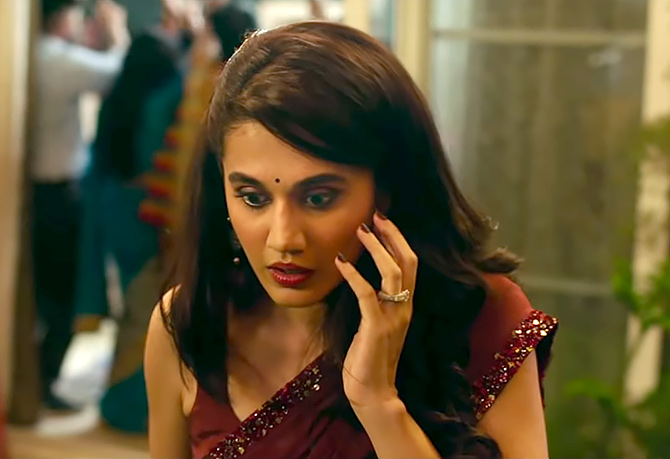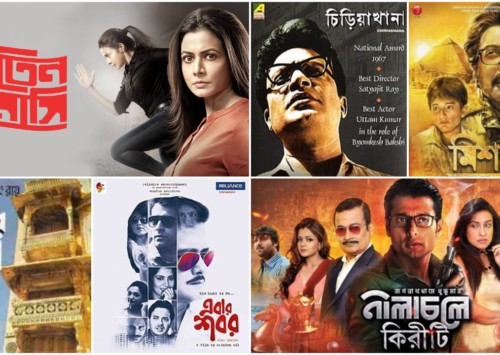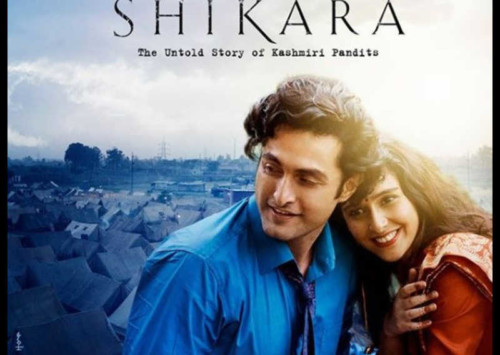Bollywood movies breaking the shackles of social conditioning
The trailer for movie Thappad which was released recently has garnered a great response from the audience for its content. The film deals with the issue of how physical violence in marriage has been normalised in our society while also capturing the society’s reaction to this issue.
The trailer begins with the frail-looking protagonist played by Taapsee Pannu being served a legal notice by her husband to return home. The lawyer tries to know about the reason for her leaving home and lists a series of questions like was it the husband’s family or was he having an affair or is it her having an affair. “So just one slap then?”– the woman lawyer asks astonished at the reason, to which Taapsee’s character replies “Just a slap. But he can’t hit me.”
The trailer then goes on to show the reactions of the people related to the main characters, giving us a slice of how society is conditioned to react in such situations. The mother is worried that her daughter will be now labelled a divorcee as she raised her voice against domestic violence; a friend suggesting how all relationships are flawed and need to be glued together while another suggests that as a woman she should learn to be more tolerant. A character even goes on to remark that she should give her husband a chance as he has been embarrassed enough by the case! It shows that how the society irrespective of gender has been conditioned to react in such scenarios.
Anubhav Sinha, director of the movie had said that he had made the film for men and not women. “Thappad is about the relationship that men and women share, in and outside their marriages. It tackles a plethora of issues that have unfortunately been normalised. A whole lot of us indulge in gaslighting without realising it. In order to correct our behaviour, we need to first know that it is incorrect,” he adds.
Many viewers have drawn a connection to the last year’s blockbuster movie Kabir Singh, which showcased violence as an act of love, that this movie is a tight slap to the toxic misogyny of the previous film. In this regard Taapsee though says that it is no such answer to any movie, but has agreed that Kabir Singh is on the opposite end of the scale in regards to this film and said, “But that’s not to say that Thappad is an answer to Kabir Singh. Only one line from its director Sandeep Reddy Vanga’s interview has been used. The general impression is that the bad guys get violent, but seemingly good, loving men can also resort to violence because of conditioning.”
Earlier the 2016 movie Pink had portrayed another important issue of consensual physical relationship as it emphasised on the significance of the word ‘No’. The movie broke the decades of ‘a no is a disguised yes’ conditioning by Hindi cinema with its conviction to propagate that ‘A No is a No’. Along with that it also showed that how the women characters were ‘seen’ by society for coming late from work, partying and drinking. Pink dissected the toxic misogynistic mentality of how a girl drinking or laughing with boys is not a symbol of her ‘availability’ and presented the dichotomy of society in implementing different treatment for similar acts based on gender.
Iterating similar thoughts like Sinha, Aniruddha Roy Chowdhury, director of Pink in a session at a recent literary meet in Kolkata said that his film was meant for men to make them aware of their own conditioned perceptions as he recounted a few incidents against women like stalking or ogling which have become quite common. He even accepted that he himself was conditioned the same way but has changed his mindset with time. He also shared a post-movie experience when he got a call from a teenage boy of 15-16 who was crying and asked the director to convey his apology to the three main ladies of the movie- Minal (Taapsee Pannu), Falak (Kirti Kulhari) and Andrea (Andrea Tariang).
It seems that Bollywood is getting bold enough to make films on social issues and address them head-on with conviction to make their point. But while on one hand, movies like Pink are setting the milestone, on the other hand the Kabir Singh’s are getting similar response. So while Bollywood’s narrative undergoes metamorphosis, are we as audiences watching and learning anything from them?













